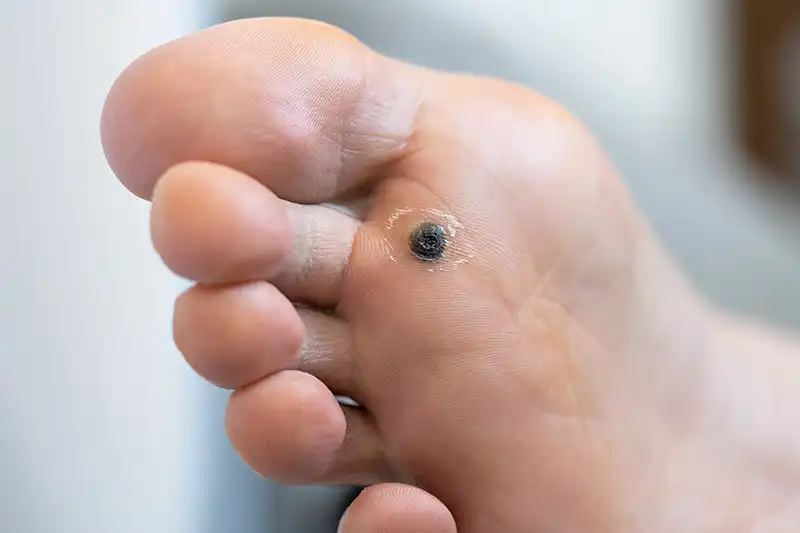Plantar Wart Removal
Removal and treatment of warts using a very unique method.


Plantar Wart Removal
A plantar wart, also known as a verruca, is caused by the Human Papillomavirus. They can be very painful, increase in size and can spread. Most people present with multiple plantar warts. Over the years warts have been tedious to treat.
Many Podiatrists and GPs use acid compounds and freezing techniques, some of which are painful and may result in multiple visits for ongoing treatment.
The Treatment of a Plantar Wart
At FITFEET we use a magical preparation called Cantharidin. It has been used for over 2,000 years in China for medical ailments and has been available to Podiatrists since 1960. It is derived from the blister beetle. Cantharidin is much safer than other preparations on the market and does not leave scar tissue like other preparations.
Cantharidin is usually applied once only. A small blister will appear 24 hours after application. After one week the wart is carefully and painlessly cutaway and voila, the wart is gone.
Reasons to Get Your Plantar Warts Treated:
- Pain Relief
- Prevention of Spread
- Avoidance of Complications
- Cosmetic Reasons
- Prevent Structural Changes to the Foot
Book an Appointment with Us
View our profile on Healthengine.com.au
General Questions
Here you may find answers to questions some of our clients have asked before? If you have additional questions, don’t hesitate to reach out to us, we’ll be glad to assist.
Plantar warts are often flat, tough, and may have a rough surface. They can appear as small, flesh-colored bumps and might have black pinpoints, which are small clotted blood vessels.
Yes, plantar warts are caused by a virus that can be spread by direct contact with the wart or through surfaces like floors of public showers or swimming pools.
To reduce the risk of developing plantar warts, wear footwear in public areas like pools and locker rooms, keep your feet clean and dry, and avoid direct contact with warts on other people or on yourself.
Some plantar warts can disappear without treatment, though it can take a long time. However, many choose to treat plantar warts due to discomfort or spreading.
While some plantar warts may not cause any symptoms, they can be painful, especially when located in weight-bearing areas of the foot that press against shoes.
Untreated plantar warts can grow, spread into clusters, and lead to discomfort or pain. They can also spread to other parts of the body or to other people.
